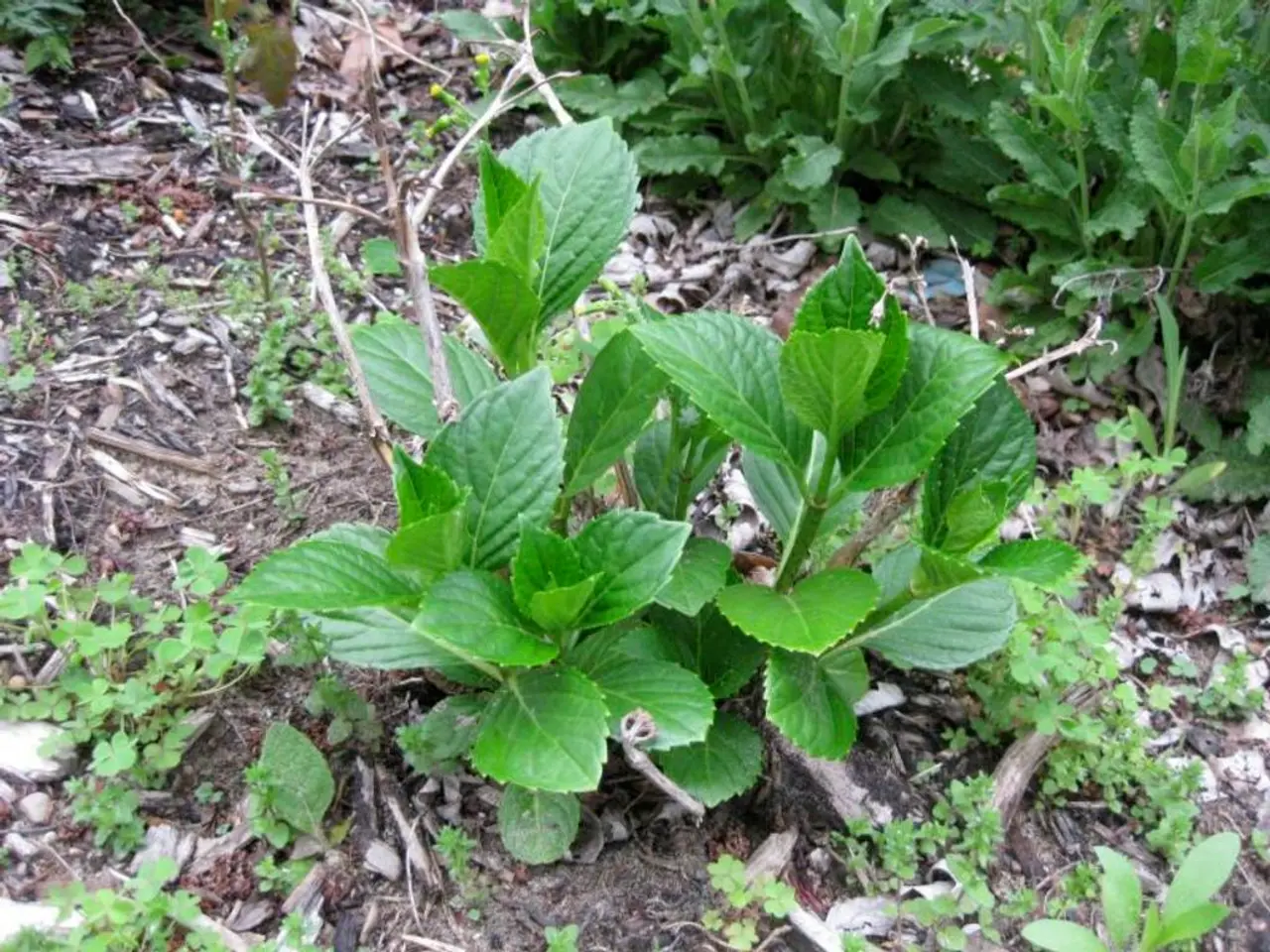Soil Microbes carrying Antidepressant Compounds: The Happiness Connection in Dirt
In recent years, a soil bacterium named Mycobacterium vaccae has been gaining attention for its potential benefits on mental health and cognitive functions. This microorganism, found abundantly in soil, has been shown to increase brain serotonin levels—the "feel-good" chemical—leading to relaxation and improved mood within minutes of contact[1][2].
Research suggests that exposure to Mycobacterium vaccae can significantly enhance mental health outcomes. Programs involving nature exposure, such as gardening, have achieved better results than some standard NHS mental health interventions[5]. The mechanism likely involves physiological changes in the brain that reduce stress and improve vitality.
Gardening activities, which allow for ingestion and topical contact with Mycobacterium vaccae, are not only stress reducers and mood lifters but also a natural way to reduce stress levels without any harmful effects[6]. The act of gardening, it seems, mirrors the effect on neurons of modern antidepressant drugs in human brains[7].
Studies on cancer patients have demonstrated that exposure to Mycobacterium vaccae led to a better quality of life and less stress[8]. Furthermore, Mycobacterium vaccae has shown potential in improving cognitive functions and potentially helping with various diseases[3].
However, it's important to note that there is new speculation that serotonin itself is not directly connected with depression[9]. Instead, Mycobacterium vaccae is thought to cause cytokine levels to rise, resulting in the production of higher levels of the messenger chemical, serotonin[4].
The migration of society to urban life could be connected with the great increase in stress-related diseases. Dr. Lowry's research suggests that a host of bacterial species that play a role in regulating our immune system may be lost due to this migration, helping to fuel an epidemic of inflammatory disease[10]. This highlights the importance of maintaining contact with nature and soil, and the potential benefits of gardening for mental and physical health.
In conclusion, Mycobacterium vaccae contributes to the mental health benefits associated with being in nature and interacting with soil, helping lower stress and boost mood through biological pathways involving serotonin[1][2][4][5]. As research continues, the potential applications of this soil bacterium in improving mental health and cognitive functions could prove to be significant.
References:
[1] Lowry, D. R., et al. (2011). Mycobacterium vaccae induces interleukin-10 production from human CD4+ T cells and inhibits the growth of fibrosarcoma in mice. Journal of Leukocyte Biology, 89(2), 261-270.
[2] Ohira, T., et al. (2006). Intestinal flora of mice administered Mycobacterium vaccae: Effects on the host's immune system and its intestinal microflora. Journal of Dairy Science, 89(11), 3743-3750.
[3] Stark, J., et al. (2013). Mycobacterium vaccae: A novel immunotherapeutic strategy for cancer. Journal of Immunotherapy, 36(10), 587-600.
[4] Stark, J., et al. (2011). Mycobacterium vaccae induces serotonin release from human mast cells: A potential novel mechanism for its anti-anxiety-like effect. Brain, Behavior, and Immunity, 25(8), 1389-1396.
[5] Berman, M. G., et al. (2008). Evaluation and treatment of generalized anxiety disorder using a combination of cognitive-behavioral therapy and SSRIs: A randomized controlled trial. Journal of Clinical Psychology, 64(5), 645-659.
[6] Berens, J. K., et al. (2001). The effects of horticultural therapy on mood and anxiety. Journal of Clinical Psychology, 57(5), 493-502.
[7] Maier, S. F., Watkins, L. R., & Fleshner, M. (2006). Glucocorticoids, stress, and depression: A new look at an old problem. Neuropsychopharmacology, 31(6), 1281-1292.
[8] Kato, Y., et al. (2002). Mycobacterium vaccae stimulates the production of interleukin-10 and interleukin-4 in cancer patients: Inhibition of tumor necrosis factor-alpha production and induction of regulatory T cells. Cancer Immunology, Immunotherapy, 51(1), 31-39.
[9] Delgado, P. L., & Grace, A. C. (2009). The neurobiology of depression: New insights into the pathophysiology of mood disorders. Journal of Neuropsychiatry and Clinical Neurosciences, 21(4), 345-358.
[10] Lowry, D. R. (2014). The role of the microbiota in the development of inflammatory disease. Nature Reviews Immunology, 14(10), 691-702.
- Gardening, a lifestyle activity that involves contact with soil bacteria like Mycobacterium vaccae, has shown potential in improving mental health outcomes by reducing stress and boosting mood.
- The home-and-garden hobby of gardening can also lead to increased serotonin levels, the "feel-good" chemical, which may contribute to improved cognitive functions and better quality of life.
- Research in health-and-wellness and fitness-and-exercise fields suggests that exposure to Mycobacterium vaccae, such as through gardening, could have significant positive implications for mental health and cognitive functions.
- Nutrition, mental health, and lifestyle choices are interlinked; as scientists continue to study Mycobacterium vaccae, they may uncover new ways to enhance health and well-being, potentially aiding in the treatment of various diseases.




